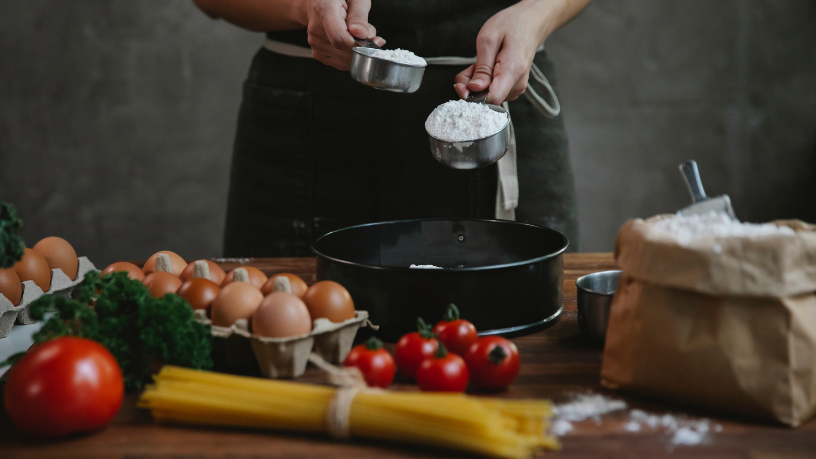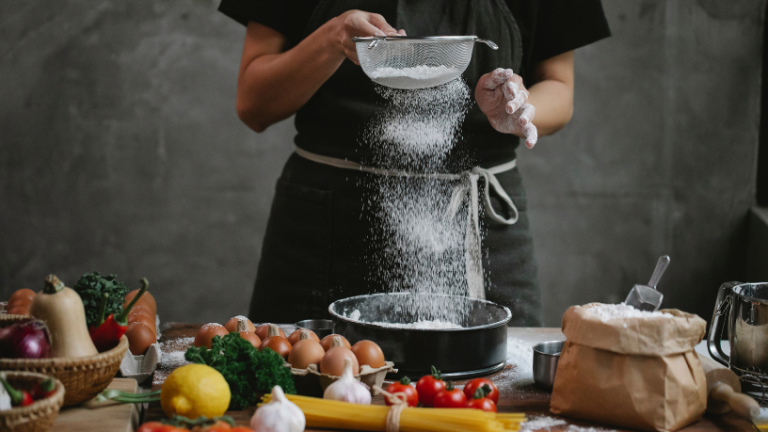When venturing into the world of international cuisine, it can be overwhelming to know where to begin. However, with the right tips and a little guidance, even beginners can easily master the art of cooking dishes from around the globe. According to Augustine Jackson, an expert in international culinary traditions, there are several steps that beginners can take to gradually build their confidence in the kitchen. This guide outlines some key tips to help you navigate the exciting world of international cooking, offering insights that will make your culinary journey both enjoyable and successful.
1. Start with Simple Recipes
One of the most important tips for beginners in international cuisine is to start with simple recipes. Diving into complex dishes can be discouraging, especially if you’re not familiar with the ingredients or cooking techniques. Augustine Jackson suggests beginning with a few basic dishes from different countries, such as pasta from Italy, tacos from Mexico, or stir-fry from China. These dishes typically require fewer ingredients and basic cooking methods, making them an ideal starting point for beginners.
Mastering simple recipes helps build confidence and gives you the foundation to tackle more intricate dishes as you gain more experience.
2. Learn to Use International Ingredients
Another essential tip is to familiarize yourself with key international ingredients. Many global cuisines rely on unique spices, herbs, and other components that may not be commonly found in your kitchen. Understanding the role these ingredients play in dishes is critical to achieving authentic flavors. Some must-have ingredients for beginners include soy sauce, coconut milk, curry powder, and various types of rice.
It’s also important to experiment with spices like cumin, paprika, and ginger, as these can instantly elevate the taste of any dish. As emphasized by Augustine Jackson, learning how to use these ingredients in the right proportions is crucial to replicating international flavors accurately.
3. Master Cooking Techniques from Different Cultures
Cooking techniques are just as important as the ingredients themselves in international cuisine. Different cultures have developed specific methods of cooking that contribute to the unique flavors and textures of their dishes. Augustine Jackson highlights the importance of learning these techniques, such as sautéing, grilling, steaming, and braising, to get the most out of your ingredients.

For example, in French cuisine, the technique of “mise en place” (meaning “everything in its place”) is essential to organizing ingredients and ensuring a smooth cooking process. On the other hand, in Japanese cuisine, the art of sushi-making requires a delicate balance of preparation and presentation.
4. Explore the Flavors of Different Regions
Exploring various regions of the world can open up a wide range of culinary experiences. different areas often have distinct approaches to cooking, reflecting the culture and climate of the region. For instance, Mediterranean dishes are often rich in olive oil, fresh vegetables, and herbs, while Indian cuisine features bold flavors through the use of complex spice blends.
To truly understand international cuisine, it’s important to try dishes from various regions, whether it’s the savory stews from North Africa or the fresh seafood dishes from Southeast Asia. Exploring these flavors will deepen your appreciation for global culinary traditions and help you become more versatile in your cooking.
5. Invest in Quality Cooking Tools
While having the right ingredients is important, using the right tools can make a significant difference in your cooking. Augustine Jackson emphasizes the importance of investing in a few essential kitchen tools to elevate your cooking experience. Some must-haves include a sharp knife, a sturdy chopping board, quality cookware, and a spice grinder. These tools will allow you to prep ingredients efficiently and cook your dishes with precision.
In addition, certain international dishes may require specialized tools. For example, a wok is essential for authentic Chinese stir-frying, while a tortilla press is needed to make perfect Mexican tortillas. As highlighted by Augustine Jackson, purchasing these tools, as needed, will help you achieve the best results.
6. Stay Open-Minded and Experiment
Finally, it’s important to stay open-minded and be willing to experiment. International cuisine is all about trying new things and embracing flavors and techniques that may be unfamiliar. It’s easy to get stuck in a routine with familiar dishes, but trying new recipes and ingredients is the key to growing as a cook. Don’t be afraid to adjust recipes according to your personal taste, but always keep the integrity of the dish intact.
As emphasized by Augustine Jackson, the process of trial and error is a valuable learning experience, and each attempt, successful or not, helps you improve your skills in the kitchen.
Incorporating international cuisine into your cooking routine can be both rewarding and fun. By starting with simple recipes, learning about key ingredients, mastering cooking techniques, exploring different regions, investing in quality tools, and staying open to experimentation, you’ll be well on your way to becoming proficient in global cooking. Following the advice of Augustine Jackson, you can transform your kitchen into a place of culinary adventure, where you can enjoy the flavors of the world from the comfort of your own home.
Autor: Mondchet Thonytom


